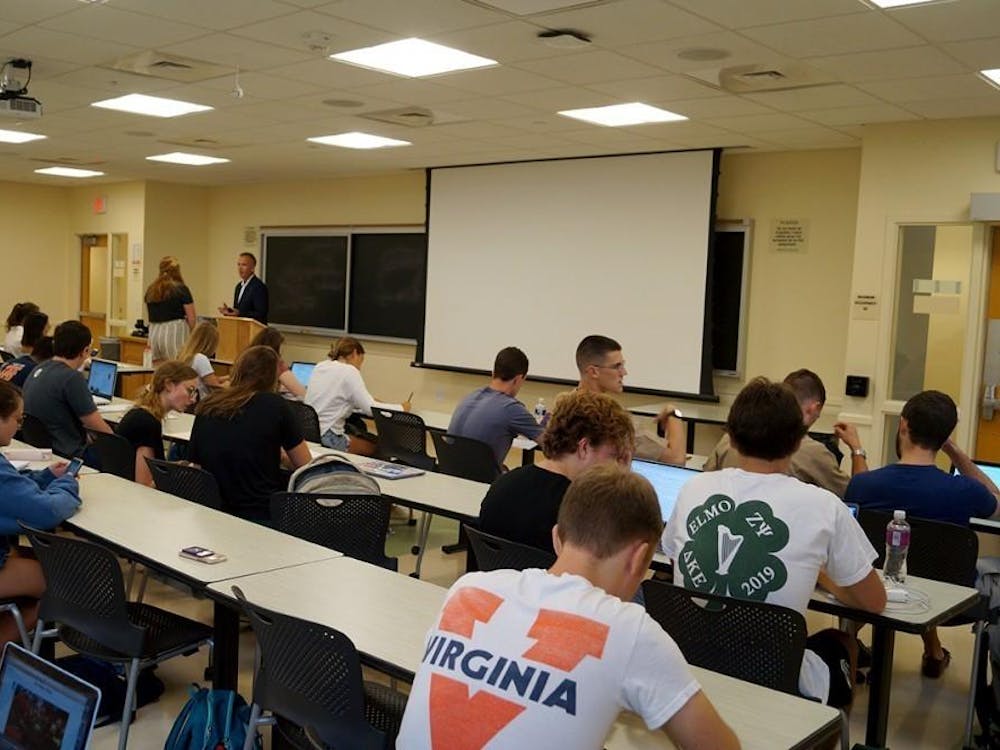The University’s pre-major advising system is, in its current form, slapdash. During fall orientation, first-year College students are assigned to faculty advisors. Like any blind date, it doesn’t always go well. Students get little choice in what advisor they are paired with. A name appears on SIS, and a few days later you’re dutifully knocking on an office door.
Although the College insists on its advising website that it makes “every effort” to match students with an advisor in their area of interest, these efforts have not yielded much fruit. Anecdotes about advising-gone-wrong abound, especially in first-year dorms: you hear of the hopeful B.A. in computer science stuck with a specialist in Romance languages who doesn’t “do” email, and of the budding literature major who lands a physicist wholly unfamiliar with the English department.
The University’s institutional surveys provide more concrete evidence about the pre-major advising system. A significant portion of students feel poorly served the advising they get before they declare a major. More than 40 percent of University of Virginia respondents reported that they were dissatisfied (29.7 percent) or very dissatisfied (10.6 percent) with their pre-major advising, according to the 2013 Student Experience in the Research University survey.
To address these problems, the University has proposed overhauling its advising system. In its strategic plan, the University lays out a “total advising” system that would add more first-year advising seminars (COLAs), promote coordination between academic deans and University Career Services, and involve alumni in advising. The system aims to make academic advising more expansive and to couple academic advising with career advising.
A comprehensive re-working of advising is not a bad idea. But the glaring problem with pre-major advising is not a lack of integration between academic advising and career advising. The problem is the haphazard nature of assigning students to faculty advisors. Often students end up with well-meaning faculty members who find it difficult to offer advice beyond generalities (take a subject you’ve never taken before! Think before you enroll in more than 15 credits!), because they are unfamiliar with the departments that their advisees are interested in. This is a problem of ineffective distribution: we are placing students with faculty members who aren’t quite right for them.
To better match students with advisors, the College should require students to list five potential majors on an advising worksheet. The sheet would not commit students to any particular course of study.
Many students don’t know what they want to major in when they enter the University, and this is a good thing. In addition, many students change their majors or guiding interests while students at the University. But a large number of these students have some idea of what subjects interest them. If students could list five potential majors on a worksheet, and if the College could commit to matching them with a faculty member affiliated with one of those majors, pre-major advising would improve.
These speculative majors might be in far-removed fields. For example, a student might list both Spanish and biology as possible courses of study. But whether that student gets assigned to a biologist or to a Spanish professor, she is being matched with a person in a field that excites her.
The inevitable cascade of incoming College students who will say they’re majoring in “pre-Comm” (which is, of course, not a major) could be directed to faculty members who have some degree of affiliation or familiarity with the Commerce School.
COLA courses — one-credit, graded classes for first-year students devoted partially to academic content and partially to advising issues — solve the problem of advisor-matching. A student’s COLA instructor serves as an advisor until the student declares a major. And presumably students sign up for COLAs on topics that they are interested in. But we can only expand COLA courses so far. COLAs are 18-person seminars, so we don’t have enough faculty to extend these classes to more than a minority of first-semester students.
Having students list a good number of majors that interest them would, in a formalized way, help the College direct students to faculty members who are more likely to be good matches. It would also give students a greater degree of control over their advising experience.






